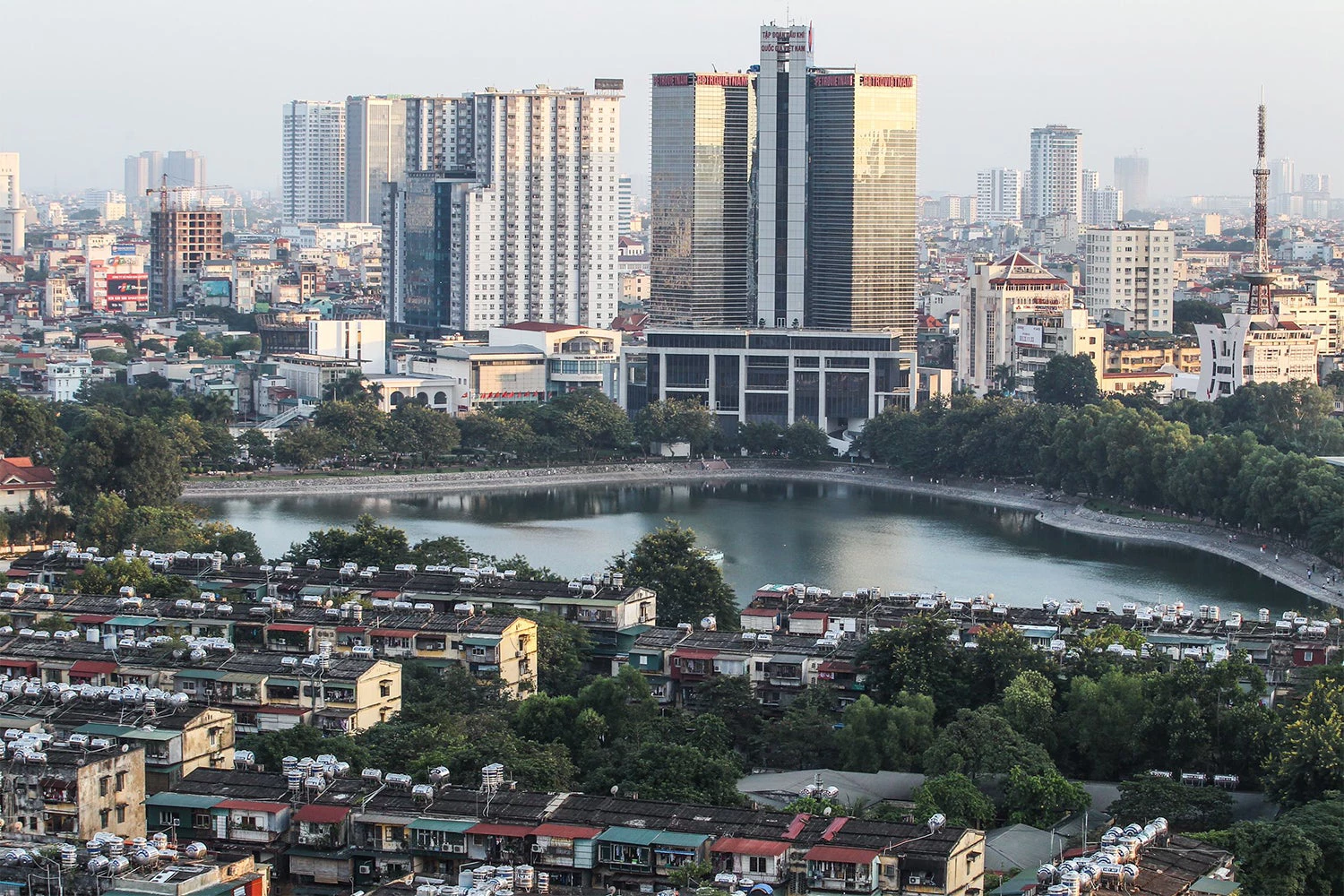 City view, Vietnam ©Nguyen Khanh / World Bank
City view, Vietnam ©Nguyen Khanh / World Bank
I just returned from a trip to Vietnam — a fascinating country, both for what it has accomplished so far and for the role that the World Bank Group has played in fostering these accomplishments.
Vietnam’s achievements since the beginning of its Doi Moi strategy in 1986 are nothing short of exceptional. Vietnam’s shift from a centrally planned to a market economy has transformed the country rapidly from one of the poorest in the world into one of the most dynamic economies in the East Asia region. The World Bank Group has been an important partner for Vietnam since the beginning of this transition. The strong partnership that the World Bank Group has built in Vietnam over the course of the past 25 years was apparent during all my discussions with local stakeholders. Many of my interlocutors pointed out that the conditionality of World Bank financing has been an important means to pass complex reform programs, to focus on critical actions, and to ensure adequate social and environmental safeguards.
Despite the spectacular progress achieved thus far, however, the current development model presents important challenges. Vietnam today specializes in limited manufacturing, i.e. it produces and exports low value-added manufacturing products that require low-skilled work. Going forward, it is important that Vietnam upgrades, increases domestic value added and per capita incomes, and moves to the next stage of development. Upgrading however may present even bigger challenges than succeeding in basic manufacturing. What is more, a buoyant international environment is normally necessary to support such transitions, but important sources of uncertainty and stressors are emerging in the global landscape.
There are four sets of actions that Vietnam can implement to fend off these domestic and external challenges.
- Future growth requires implementation of an ambitious agenda in key policy areas: deep domestic policy reforms; investment in infrastructure and connectivity; climate change resilience and adaptation; improvement, reskilling and retention of human capital; and establishment of a cooperation framework for regional solutions to the threats to the Mekong Delta survival. Some of these areas are specific to Vietnam, but several are typical of all middle-income countries, and Vietnam can draw on the successes and failures of other countries in informing its policies. Progress in all areas can be made assuming there is political will to take the necessary actions.
- Beyond the large reforms, there are many concrete small steps that can be taken immediately. For example, domestic supplier programs or international certification initiatives can help increase the connectivity of domestic firms to FDI and facilitate knowledge transfer. Such steps can be easily identified through research and data analysis, provided the country opens access of its microdata to the research community and its development partners.
- Importantly, in the face of a deteriorating international environment, Vietnam should resist the temptation to become protectionist. While the long-run future of Vietnamese exports to the U.S. and Europe may be uncertain, a large integrated regional market in South East Asia is a real possibility. Most countries in the region have been open for decades. Creating a large regional market, similar to what the EU is for Europeans, could have large growth effects for member countries. [For why this makes sense, read my next Blog: “Rediscovering Krugman”]. Vietnam could take the lead in ASEAN to drive this effort, especially in services. While services require a much more ambitious agenda of deep integration than manufacturing, this is an area where Vietnam could think big and provide a counterbalance to the protectionist tendencies in other regions of the world. The window of opportunity is now, as Vietnam assumes the Chairmanship of ASEAN this October.
- Finally, Vietnam should embrace the sustainability and shared prosperity agenda. Vietnam aspires to become a modern economy, and in doing so, it faces the same issues that advanced countries are currently confronting. This means that the country needs to go beyond growth: it needs agendas for ethnic minorities; gender equality; urbanization and congestion; air pollution; climate change adaptation. Solving these problems will create growth and higher incomes, and potentially competences and solutions that are exportable.
In each of the above areas, the World Bank Group can contribute analytical expertise and instruments to support the country. Focusing on inclusive growth and sustainable development, rather than exclusively on high short-run growth, will help the country avoid the middle-income trap and transform itself to an advanced, modern economy.


Join the Conversation